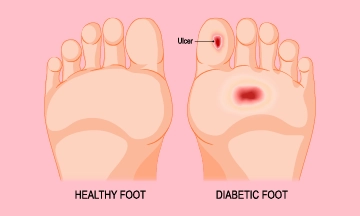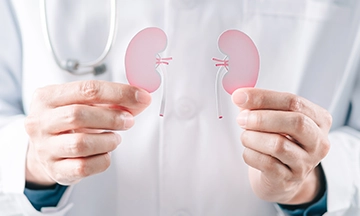
Diabetes is a chronic condition that affects millions of people worldwide. One of the most serious complications of diabetes is stroke, a medical emergency that occurs when blood flow to the brain is interrupted. Diabetes is a leading cause of stroke, and people with diabetes are at a higher risk of suffering from a stroke compared to those without diabetes.
Here, we will explore the relationship between diabetes and stroke and discuss some strategies for reducing diabetes and stroke risk in people with diabetes.
What is Diabetes?
Diabetes is a metabolic disorder that affects the way the body processes blood sugar or glucose. The body uses glucose for energy, and insulin, a hormone produced by the pancreas, helps regulate blood sugar levels. In people with diabetes, the body either does not produce enough insulin or does not use it effectively, resulting in high blood sugar levels.
There are two main types of diabetes.
- Type 1 diabetes, also known as juvenile diabetes, occurs when the body does not produce insulin.
- Type 2 diabetes, the most common type, occurs when the body does not use insulin effectively or does not produce enough insulin.
- Type 2 diabetes is often linked to lifestyle factors such as poor diet and lack of exercise.
What is a Stroke?
A stroke occurs when blood flow to the brain is interrupted or reduced, preventing oxygen and nutrients from reaching the brain cells. There are two main types of stroke: ischemic stroke and hemorrhagic stroke. Ischemic stroke occurs when a blood clot blocks a blood vessel in the brain, while hemorrhagic stroke occurs when a blood vessel in the brain ruptures.
Symptoms of Stroke
The symptoms of stroke can vary depending on the location and severity of the stroke. Some of the most common symptoms of stroke include:
- Sudden numbness or weakness on one side of the body
- Difficulty speaking or understanding speech
- Vision problems, such as double vision or loss of vision in one eye
- Sudden severe headache
- Dizziness or loss of balance
The Link Between Diabetes and Stroke
Diabetes is a major risk factor for stroke. High blood sugar levels can damage blood vessels, increasing the risk of blood clots that can lead to stroke. In addition, diabetes can increase the risk of other stroke risk factors, such as high blood pressure, high cholesterol, and obesity. People with diabetes are also more likely to have atherosclerosis, a condition where plaque builds up in the arteries, increasing the risk of stroke.
Reducing the Risk of Stroke in People with Diabetes
While diabetes is a major risk factor for stroke, there are several strategies that people with diabetes can use to reduce their risk of stroke:
1. Manage Blood Sugar Levels
Managing blood sugar levels is essential for people with diabetes to reduce their risk of stroke. Keeping blood sugar levels within a healthy range can help prevent damage to blood vessels and reduce the risk of blood clots.
2. Control Blood Pressure and Cholesterol
High blood pressure and cholesterol levels are major risk factors for stroke. People with diabetes should work with their healthcare provider to manage their blood pressure and cholesterol levels through diet, exercise, and medication if necessary.
3. Maintain a Healthy Lifestyle
A healthy lifestyle can help reduce the risk of stroke in people with diabetes. Eating a healthy diet, exercising regularly, maintaining a healthy weight, and avoiding smoking can all help reduce the risk of stroke.
4. Take Medications as Prescribed
People with diabetes may be prescribed medications to manage their blood sugar levels, blood pressure, and cholesterol. It is important to take these medications as prescribed and to follow up with healthcare providers regularly to ensure that medications are working effectively.
5. Be Aware of the Signs of a Stroke
Being aware of the signs of stroke is essential for people with diabetes. If symptoms of stroke occur, it is important to seek medical attention immediately to reduce the risk of serious complications.
Conclusion
In conclusion, diabetes and stroke are two interconnected medical conditions that can have serious consequences for your health. By understanding the link between these conditions and taking steps to prevent them, you can reduce your risk of developing diabetes or having a stroke. If you have any concerns about your risk of these conditions talk to the best diabetologist in Bangalore at Sakra World Hospital, who offers the most effective approaches to prevent and control these health issues.














